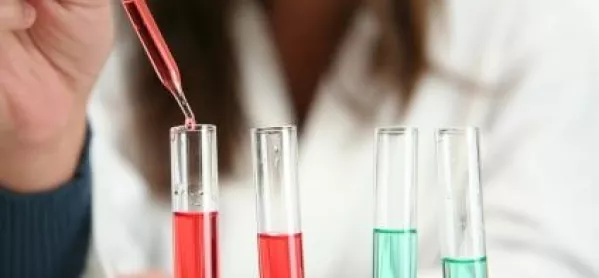Transporting a raw egg, making poo and building sandcastles all feature in science lessons at Grateley House School, near Andover, which specialises in pupils aged 11 to 19 who have Asperger’s syndrome (AS) and related difficulties.
“Pupils with AS often have poor auditory memories and they learn best from multi-sensory stimuli, particularly those that are visual and tactile,” says Diana King, who teaches science. “We try to make science fun and to give pupils as many memorable, hands-on experiences as possible.”
Diana believes in devising enjoyable, open-ended projects that offer all pupils success but are also sufficiently challenging for the brightest; the ability span at GCSE science ranges from A* to G.
“It is wonderful that some pupils get A* and A grades, but sometimes it is the ones who, against all the odds, get an E or an F grade that can bring the greatest sense of achievement,” says Diana.
For the school’s Wacky Races-style challenge, pupils design, build and test vehicles to transport a raw egg safely, exploring concepts such as gravity and friction.
To study human nutrition, pupils cut up food and use acids and enzymes to recreate digestive processes, while dissection helps them explore the structure of mammalian hearts and lungs.
Pupils pump the lungs up with a bicycle pump to see how they work. They can see and feel the spongy texture that allows respiration, although it is not compulsory for the squeamish.
The pupils draw skeletons and slot in the body parts, plus they knit woolly intestines with their fingers to show their extraordinary length.
Making imaginary fossils enlivens geology and pupils build sandcastles with varying amounts of water to test the effects of particle cementation. They use jelly to investigate the flow of lava and miniature volcanoes are created in Plasticine cores of sodium bicarbonate and vinegar.
Some pupils may find writing difficult as they may also have Tourettes, ADHD or dyslexia. So they are encouraged to draw pictures or make models to show their understanding of processes, such as early embryo cloning and respiration. Problems with writing are no bar to success; two pupils who needed readers and scribes during their exams recently gained GCSE grades well above the expected level.
Visual prompts are used when possible. Pupils review their work by looking at photographs taken during lessons, which show experiments and other activities. There are vivid displays of pupils’ work, but the area around the whiteboard remains blank to avoid distraction. To aid concentration, restless children complete science jigsaws such as “Beastly Body Bits” to occupy their hands while they are listening. They can do “brain gym” or take short exercise breaks during lessons to keep their minds focused.
Teaching science this way is popular with the pupils. “Although I would insist that I knew nothing about science and was rubbish at it, my teacher constantly encouraged me and helped me and now science is my favourite subject,” says Becky Taylor, 16.
Rebuilding confidence is one of the main aims of the school because many pupils have had a disrupted education full of negative experiences.
“We are trying to give everyone an opportunity to shine and gain the respect of their peers,” says Diana. “At that point, they start believing they can do science.”
Making science work for pupils with AS
- Use plenty of visual prompts.
- Try activities offering multi-sensory experiences.
- Use science word cards to label diagrams or to match key vocabulary with definitions.
- Link into the specialist interests or knowledge that pupils with Asperger’s syndrome may have.
- Boost confidence.


